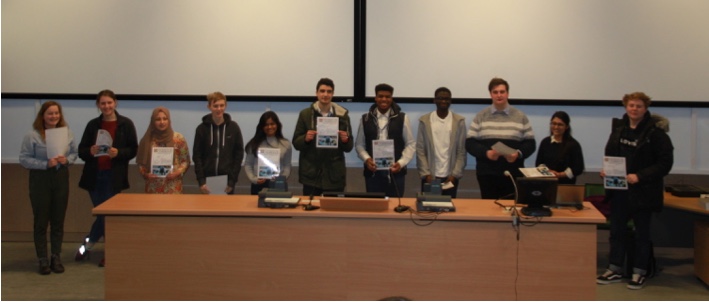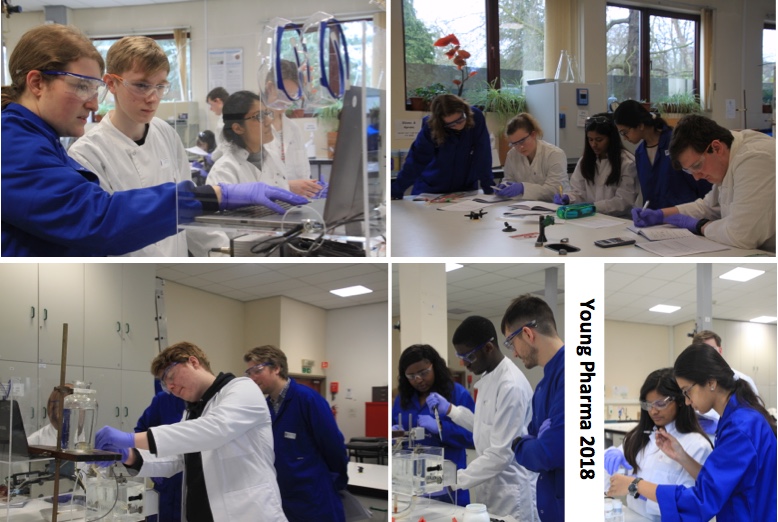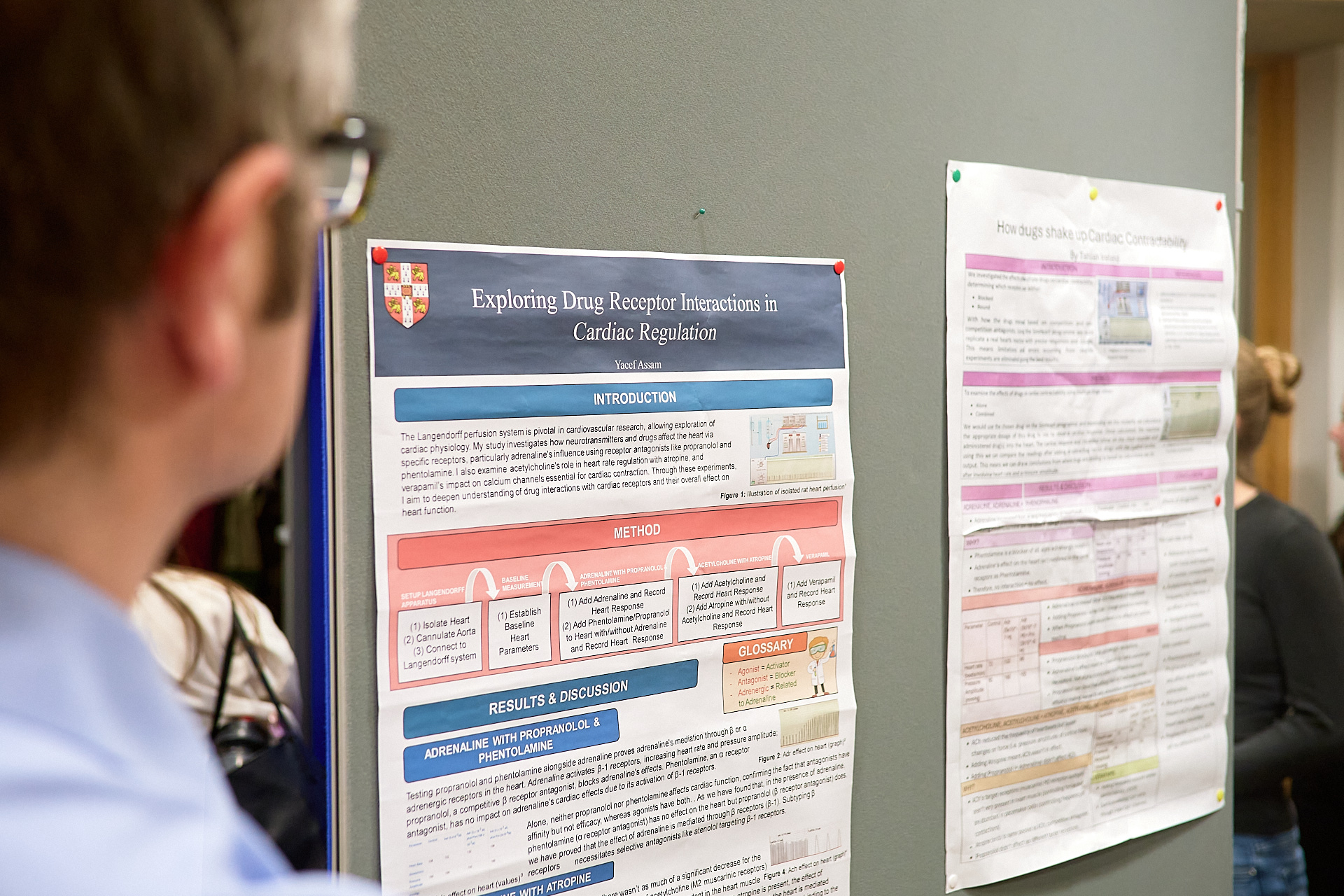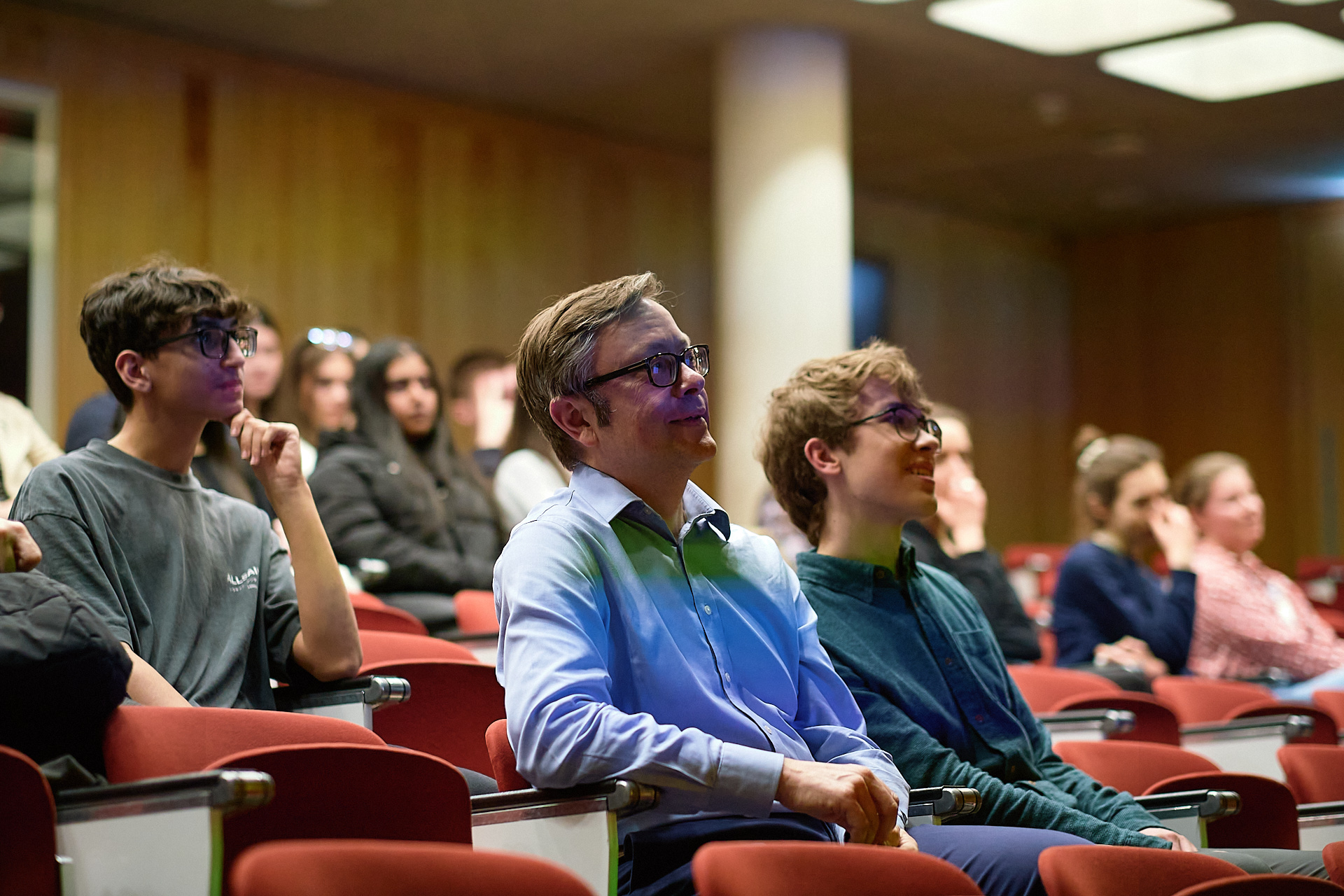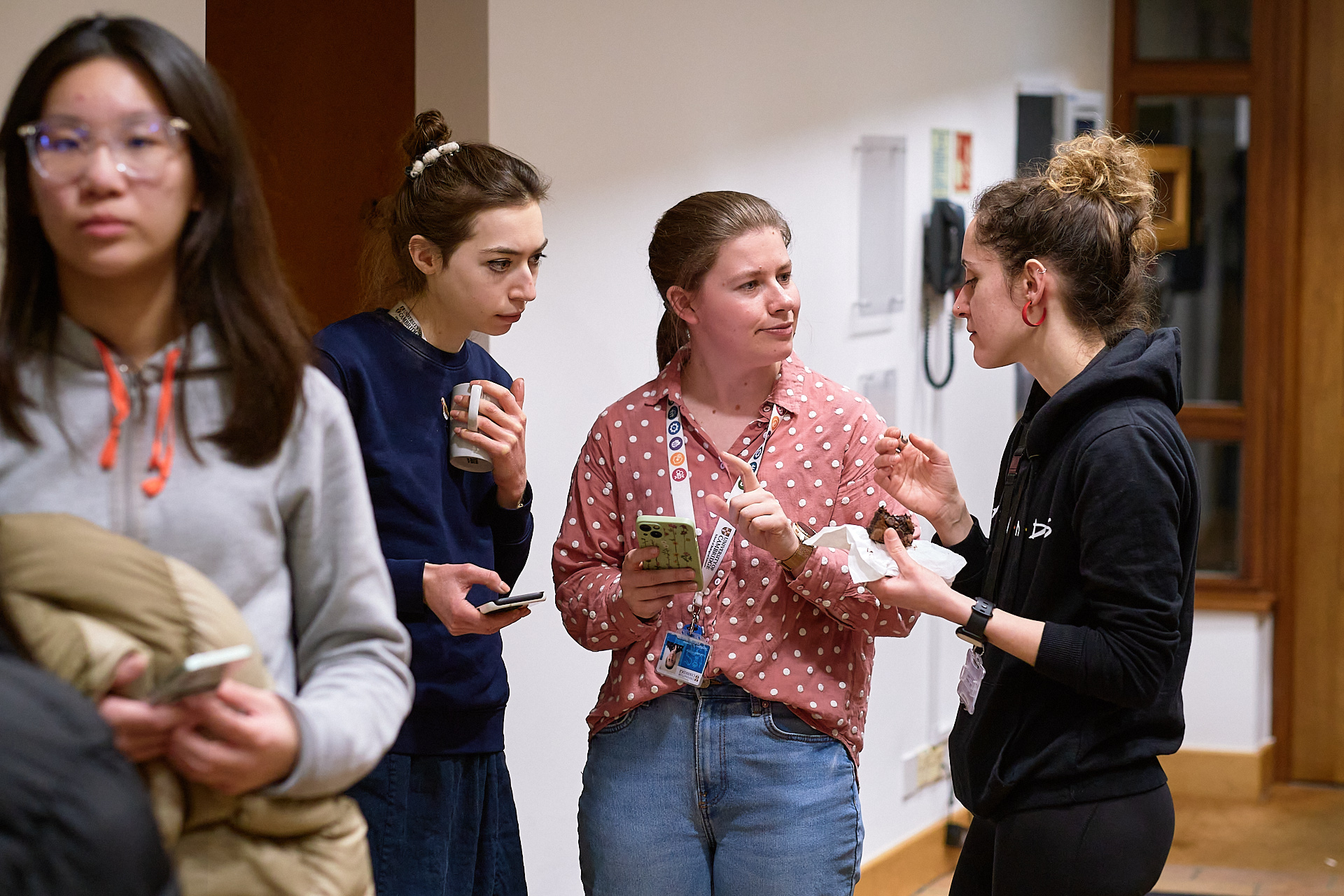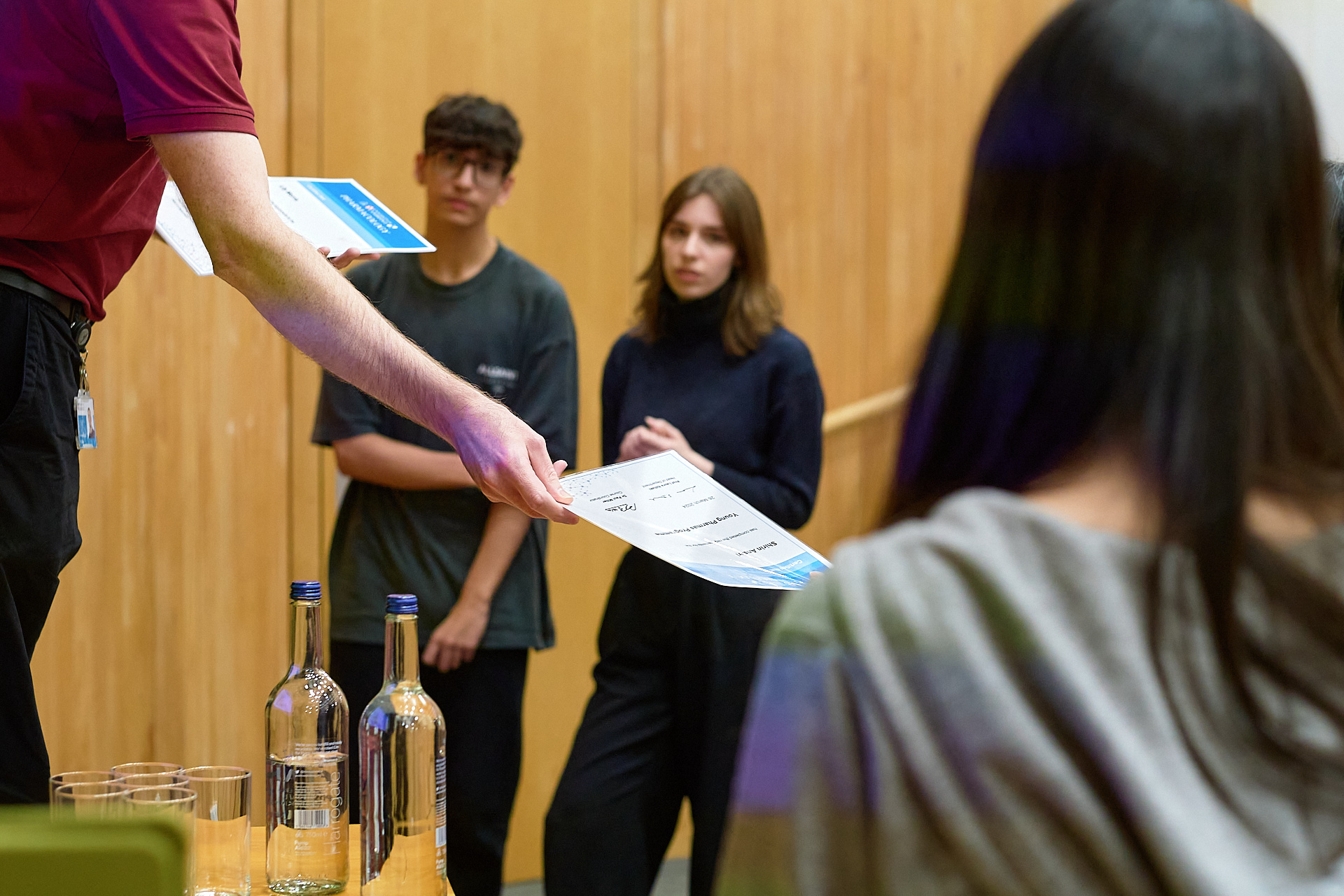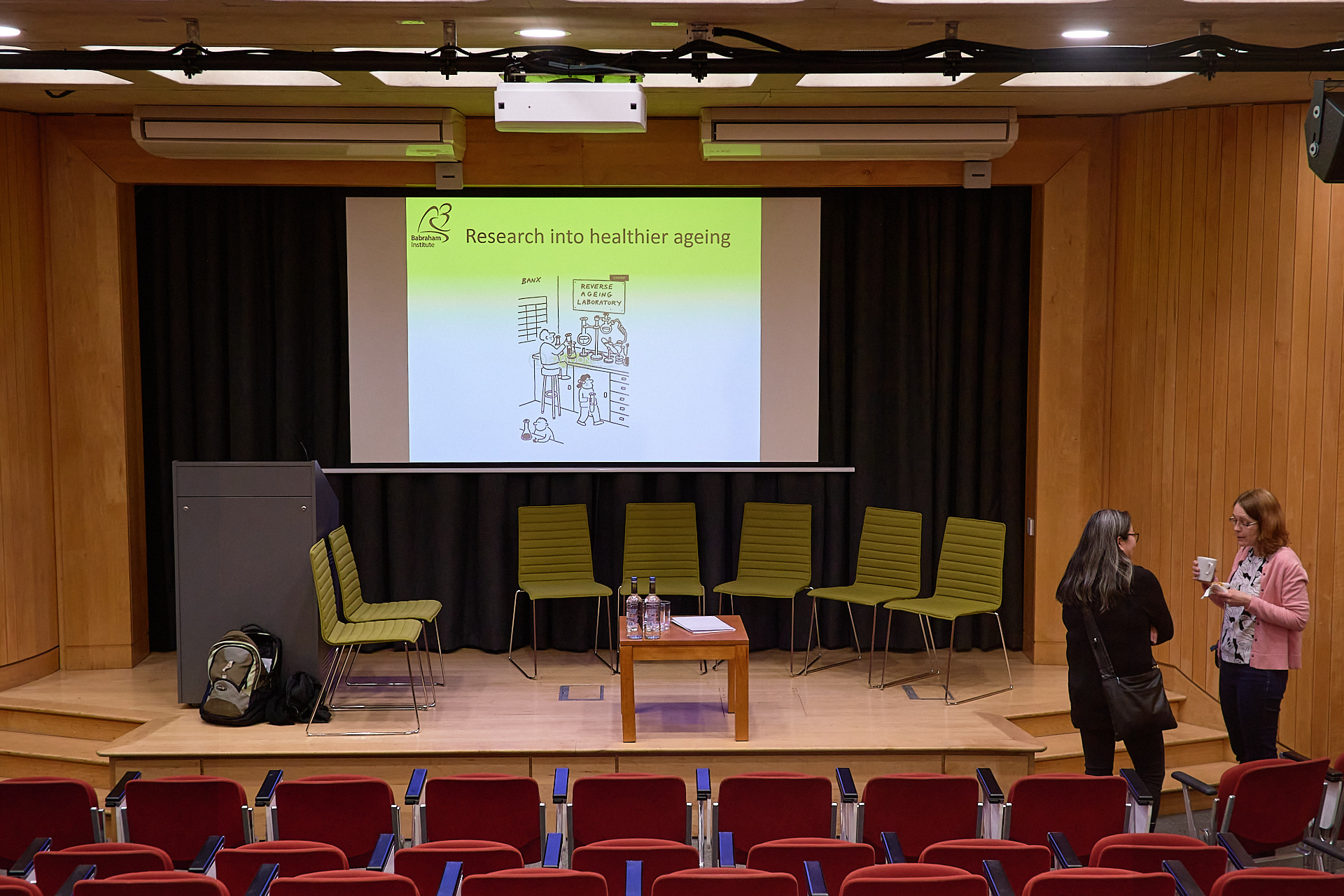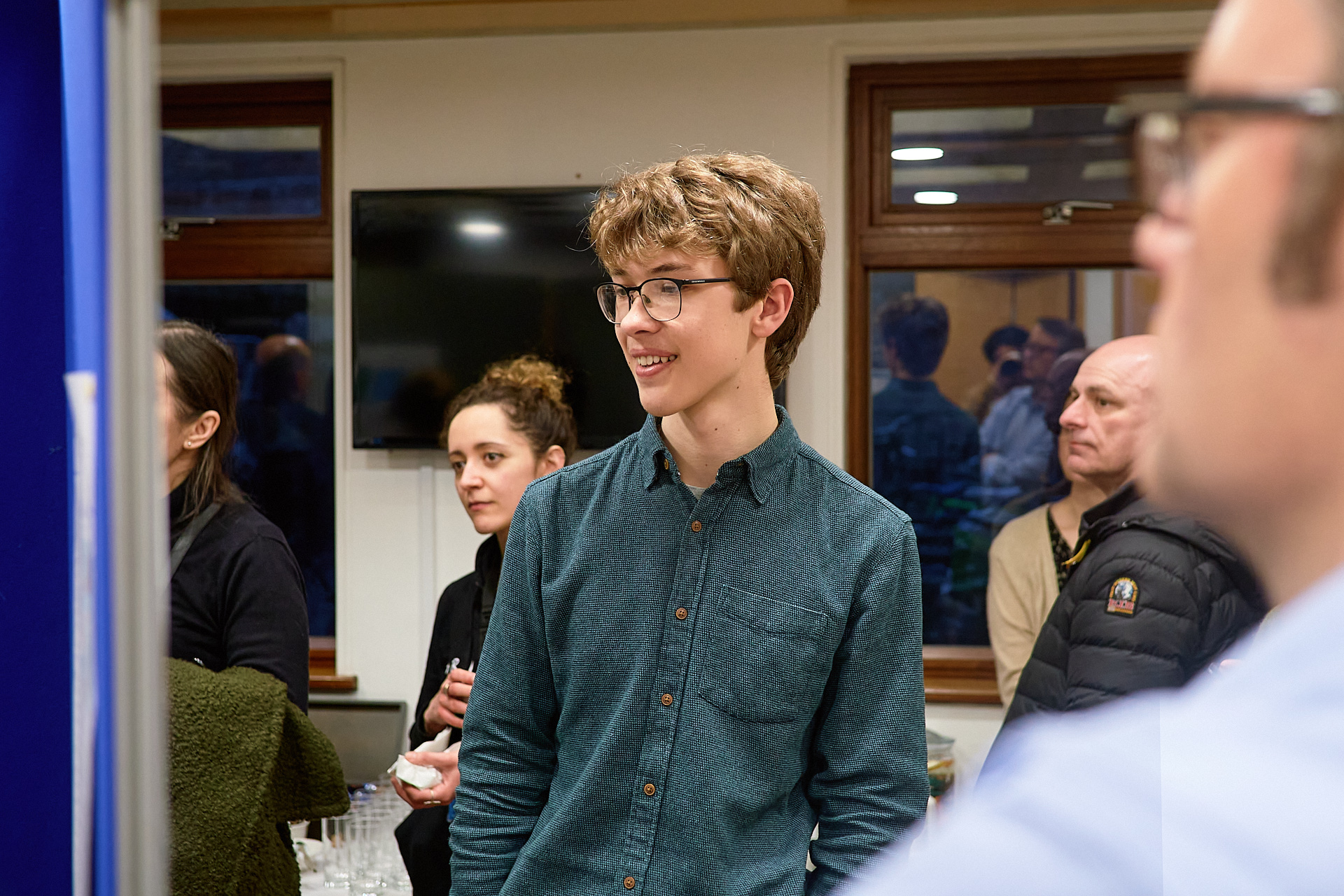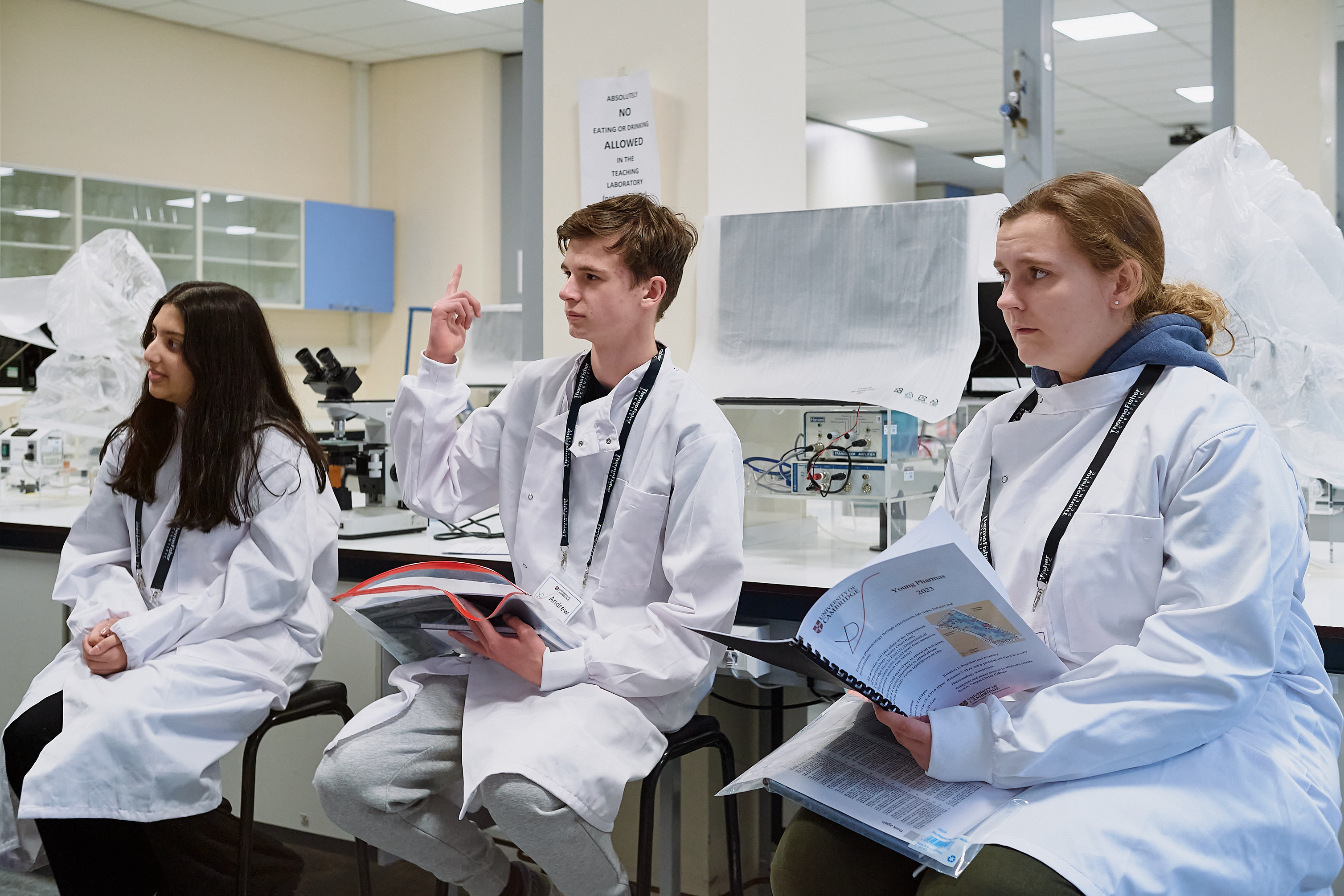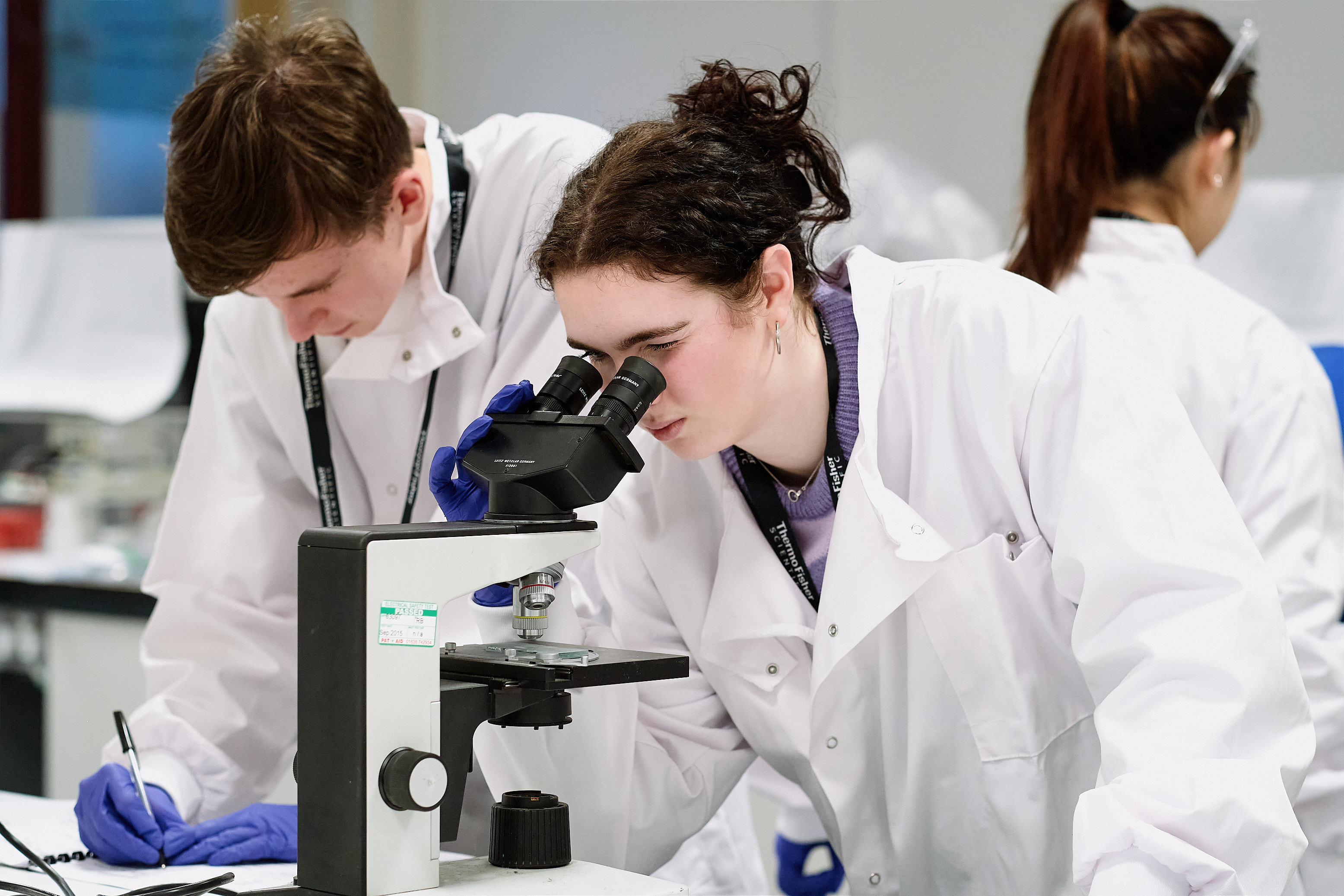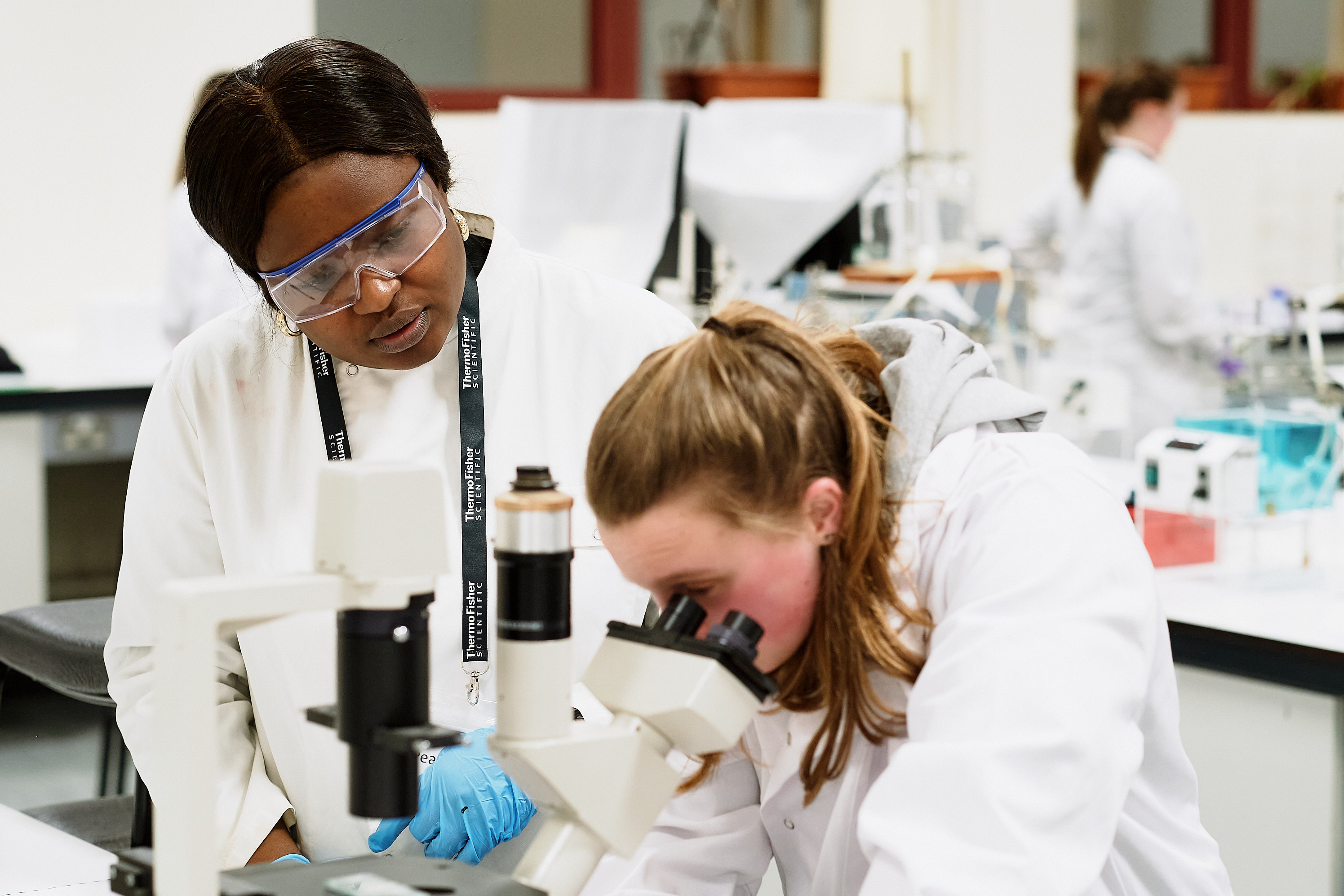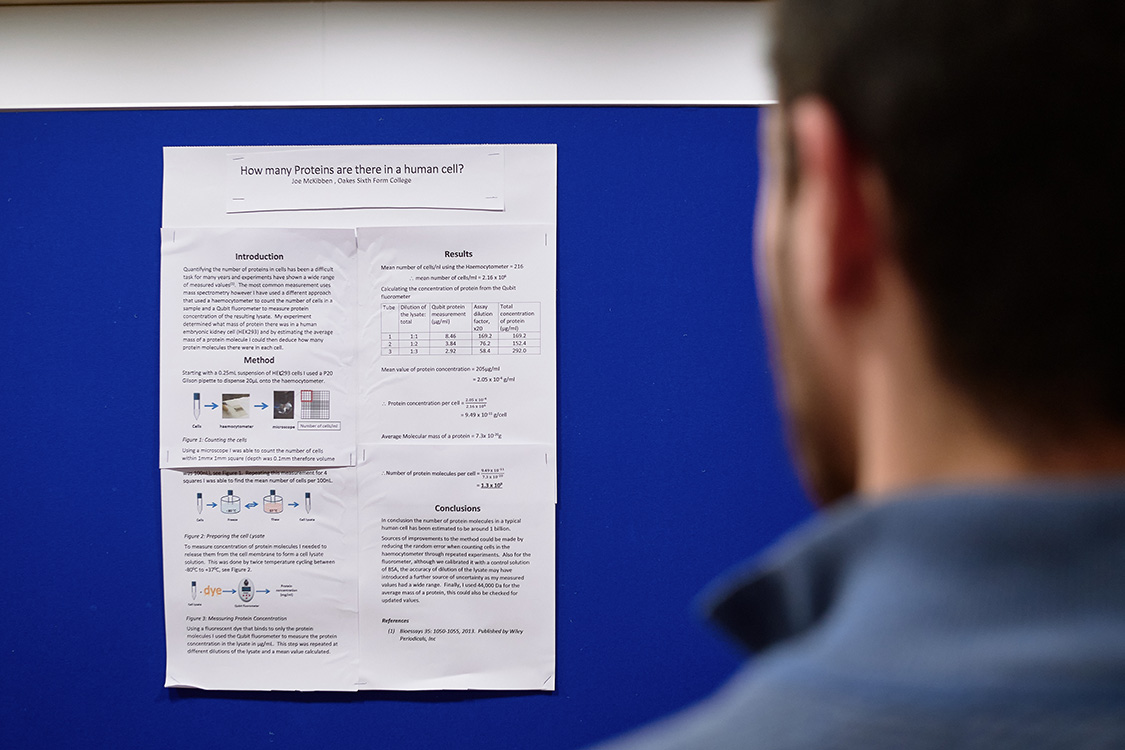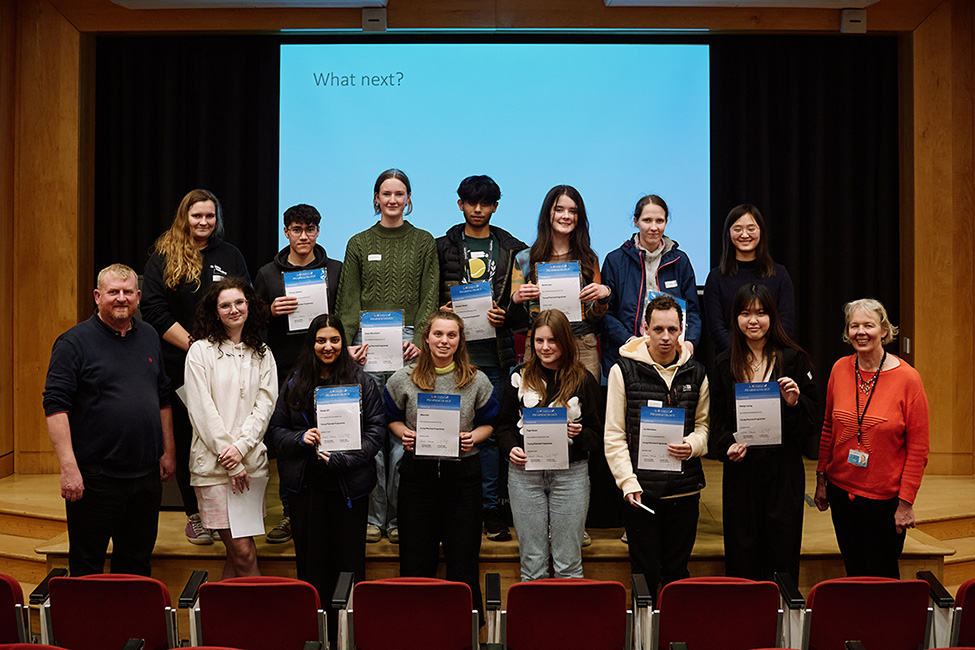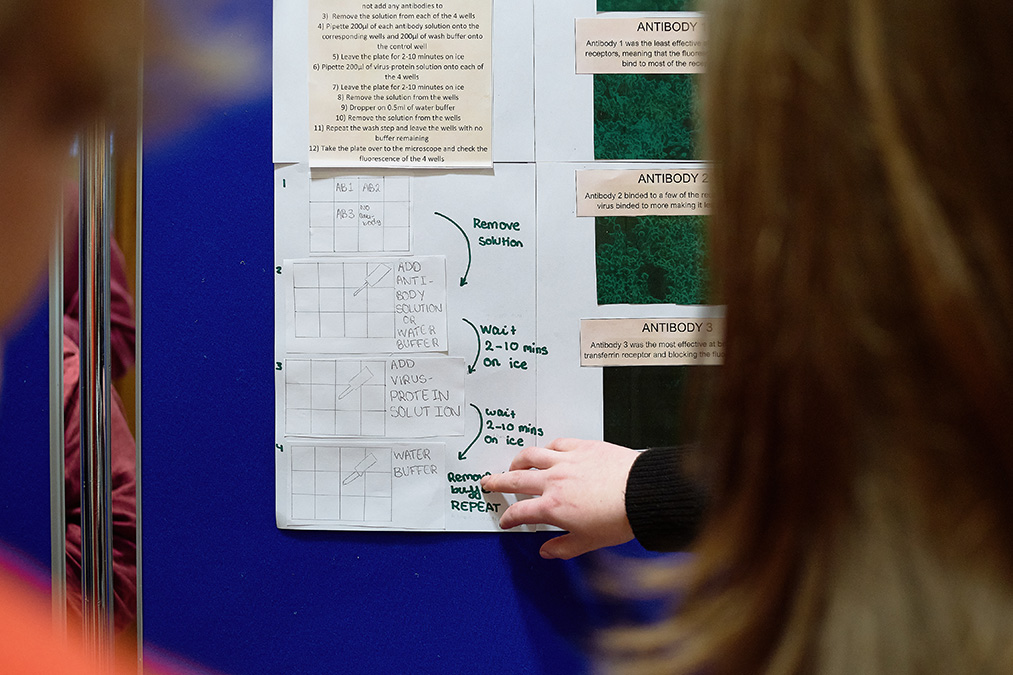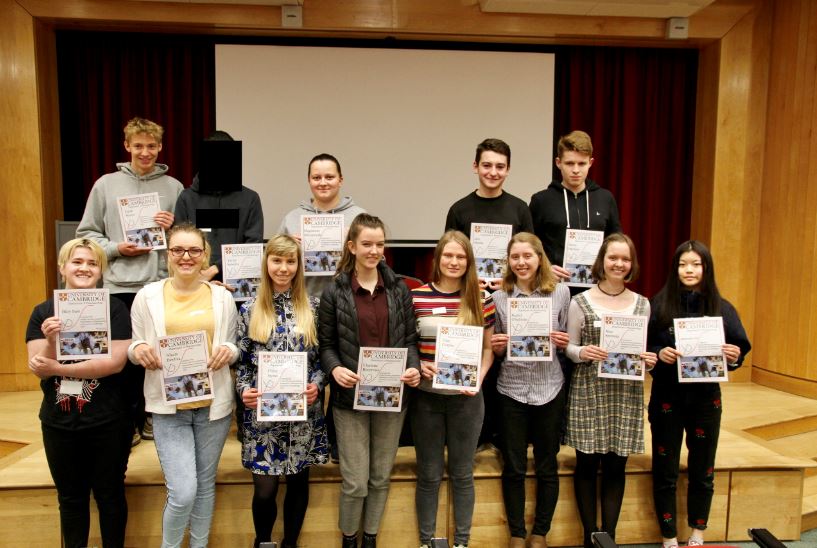Young Pharmas is an exciting annual outreach scheme headed by the Miller lab, with support from throughout the Department, in which several hands-on practical sessions give students currently studying biology and chemistry the opportunity to experience what a career in science might be like. We highlight the importance of making accurate scientific measurements and introducing modern techniques such as fluorescence microscopy.
As well as aiding in the understanding of current A-level subjects, Young Pharmas aim to get students thinking about science in a wider context beyond the classroom and give a taster of what life as a University of Cambridge student might be like.
An archive of previous events can be found here.
Young Pharmas 2024
In April 2024, we hosted the last event for the 2024 Young Pharmas cohort. We hosted 16 sixth-form students from the following local colleges:
-
Hills Road Sixth Form College
-
Long Road Sixth Form College
-
The Oaks/Netherhall
-
Comberton Village College
The Young Pharmas programme aims to introduce A-level pupils to University-led scientific research. Students engaged in four events hosted at the Department and Corpus Christi College. We thank our volunteers: Paul Miller, Ollie King, Sulin Liu, Caroline Wyatt, Stephanie Nestorow, Andrzej Harris, Melissa Irvine, Vasiliki Mavridou, Janet Kumia, Taufiq Rahman, and Jose Gonzalez-Prada.
At the Department, we ran two rotations and a masterclass.
Rotation 1 covered Precision and Accuracy. This rotation taught students the important lesson of quantitative and reliable measurements. This involved measuring the reliability of pipettes and related equipment. Students recorded this information in a lab notebook, emphasising the importance of recordkeeping.
Rotation 2 covered protein assays, in the context of measuring how many proteins are in a cell. Students counted the number of HEK 293, collected cell lysates via freeze-thaw lysis and counted proteins via Qubit quantification. Students calculated the number of cells per ml, protein concentration in micrograms/ml, total protein in a cell, average mass of a protein, calculated average mass of a typical protein molecule, and the number of proteins in a cell.
In the Masterclass, students learnt techniques Pharmacologists use to understand the mechanism of drug actions. The masterclass aimed to highlight how understanding drug actions can lead to the development of better drugs. During the Masterclass, students performed two practicals: A virus-infection practical, where antibody-type drugs are used to show how blocking interactions can be used as a treatment, and a heart practical, where small molecule drugs are demonstrated and their mechanism of action is illustrated.
Finally, to conclude the programme, students were invited to a poster and talk session at Corpus Christi. This session aimed to give students a taste of poster presentations - an aspect of research that is crucial for communicating the work done in academic laboratories. We also hosted Dr. Della David from the Babraham Institute, who gave an in-depth talk on "Research into Healthy Ageing".
All students were given a certificate to commemorate their work, plus a gift card was awarded to the poster presentation winner.
Young Pharmas 2023
Sixth-formers have returned to Cambridge University to take part in the Young Pharmas scheme. From Hills Road, Long Road, Camberton and The Oaks, they have been carrying out scientific experiments to better understand key pharmacology concepts.
The outreach scheme is headed by Dr Emily Taylor, a member of Professor Graham Ladds' lab, and supported by a range of researchers and PhD students throughout the Department of Pharmacology, including Dr Taufiq Rahman. The scheme recently restarted following a period of disruption.
These 17 students took part in hands-on practicals and poster presentations to experience what studying science at University might be like. The practical sessions introduced modern research techniques such as fluorescent labelling along with commonly used tools such as multi-channel pipettes.
These practical sessions focused on discovering how many proteins are in a cell, how viruses infect cells and a simulation of how drugs affect heart contraction.
In the final event of the scheme, the students produced and presented scientific conference-style posters at Corpus Christi College. There, they presented their findings and experiences while fielding questions from an interested audience.
"It is lovely to see how the YP's students became more confident and proficient in performing experiments and scientific calculations as they progressed across the different YP activities. It was especially good to see how their eyes lit up when using the Floid microscope to observe different proteins and how they were arranged in a pulmonary artery endothelial cell" said Dr Taylor.
A final evening was held on the 28th of March at Corpus Christi College. Students presented their findings in the form of a poster session. Congratulations to Tansy Xue, who won the best poster, and Joe McKibben and Gladys Leung, who won the highly commended poster award. Dr David Bulmer then gave a great talk on the causes of Irritable Bowl Syndrome and his lab's progress in researching the disease.
The scheme was well received by the staff, parents and students. The students mentioned how well the demonstrators engaged with them individually. By participating in the scheme, students have been supplemented with the understanding to place scientific research beyond the classroom.
Images from the day:
Young Pharmas 2019
Over the past three months, sixteen bright sixth formers from Netherhall, Long Road, Hills Road and Comberton have been busy carrying out scientific experiments and investigating key concepts in pharmacology.
During a day-long Pharmacology Masterclass, students were given an undergraduate-style lecture on the structure and function of muscle, and how diseases can be treated by targeting receptor proteins with drugs that influence tissue function.
In small groups, students then got to tackle two practical experiments - an ileum preparation and a Langendorff heart preparation - which demonstrated the effects of various drugs on muscle tissue.
These budding scientists weren’t afraid to ask some seriously insightful questions to the post-doctoral staff and PhD students from the department either!
A final presentation evening was held at Corpus Christi College where students had to present their findings in the form of a poster - congratulations to Ellen Chaplin from Hills Road for winning the prize for best poster!
Prof. Alasdair Coles from the Department of Clinical Neurosciences then delivered an engaging talk about the trials and tribulations of getting the immunotherapy drug alemtuzumab, also known as Campath-1H, into the clinic to treat patients with multiple sclerosis and other immunological illnesses.
Hopefully the department will see some of these Young Pharmas return for their university studies in the future!
Young Pharmas 2018
Tuesday 20th March saw the culmination of the 2018 Young Pharmas course. Students from Hills Road, Long Road and Netherhall 6th form colleges completed two evenings of hands on experiments, followed by a 1-day masterclass where they were really able to get to grip with drug-receptor aspects of pharmacology.
On the final evening of the week, students had to present a poster on some aspect of their work and this year’s winner was Harry Hurst from Long Road - congratulations!
Before presentation of the poster prize, students, parents and staff were given an exciting talk by Dr Amy Milton from the Department of Psychology about the science of drug addiction, a talk that sparked a lot of questions from the audience.
